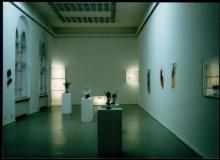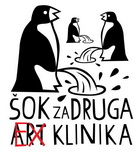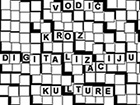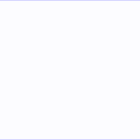Joint efforts to regulated working conditions in the Fine Arts
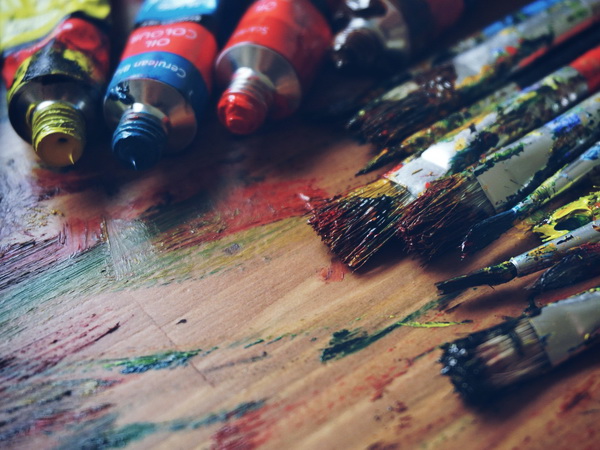
The Association of Fine Artists of Serbia (ULUS), in cooperation with the Institute for the Study of Cultural Development (ZAPROKUL) and the Ministry of Culture and Information of Serbia, is carrying out extensive research on program policy and the economic framework of the activities of galleries and exhibition spaces, based on the analysis of which particular measures would be proposed for resolving the complex issue of the working status of artists, including the price list, i.e, the method of determining their royalties.
The obtained data will serve as a basis for a better arrangement of the working environment in the field of fine arts in the interest of all its actors - artists, cultural and educational workers, curators, gallerists, critics, decision-makers in the sphere of culture and art, as well as the wider social community, it was said at the presentation of that initiative in the ULUS Gallery, which was attended live or online by representatives of individual galleries and exhibition spaces.
This undertaking is part of the wider initiative of ULUS to regulate work in the field of fine arts, which first of all implies the establishment of a system of fair compensation for artists and workers in culture, and the improvement of the social and tax framework in which their work takes place, as well as a better social status of art.
Advisor in the Ministry of Culture and Information (MKI) for the field of visual arts Dimitrije Tadić, Director of ZAPROCUL Marko Krstić, Head of the UNESCO Department of the University of Arts in Belgrade Nina Mihaljinac,
Art Historian and Theoretician at ZAPROCUL Dragana Martinović and Artist Vahida Ramujkić from ULUS, emphasized the importance of collecting reliable data based on the research of the situation on the ground, because in this way certain developments have already occurred.
This is how, according to previous research, as Tadić reminded, there was a change in the propositions of the MKI competition regarding the ability of galleries to acquire technical equipment and furniture.
“For years, galleries were allowed to rent technical equipment, but not to buy it. The reason for it was not clear. Simply, things sometimes work due to the level of pressure, and when there is a joint, united front of the fight for the common good, then it is more effective”, said Tadić, citing as a possible further step of joint action the advocacy of tax reduction for artists, for which the Ministry of Finance should be addressed to.
Nina Mihaljinac pointed out that, in a similar way, a recommendation was included in the MKI competition this year to pay artists a certain fee.
“It is a direct consequence of research work, and there are many more such examples, not only in the visual arts”, she said, pointing out that writers, translators and other artistic professions also face numerous problems.
The research of the gallery system would therefore, as she pointed out, be a scientific-research basis for the development of new cultural policies that will contribute to the improvement of the life, social and professional status of artists.
Vahida Ramujkić emphasized that ULUS acts primarily from the position of an artist, taking into account the lack of a fixed price for work. That problem cannot be solved if the galleries do not have an organized work system, which is why ULUS strives for them to be strengthened.
Already from the first answers to the questionnaire, it can be seen that cooperation is necessary among the galleries themselves, because they have common problems, said Vahida Ramujkić. The research is therefore also significant in terms of the possible formation of a network of galleries that can work together in the future, she added.
“Exhibition spaces and galleries, conditionally speaking, are our employers. We operate through royalties, but there are no standard labor prices. Our intention is to try to determine the minimum labor prices that must be regulated. For that we have to establish parameters, which we can only get from gallery spaces, because it is not the same to do an exhibition in a small gallery in the interior and in the Museum of Contemporary Art, for example”, said Vahida Ramujkić.
Director of ZAPROKUL Marko Krstić said that it is important to make a distinction between gallery and exhibition spaces, because they are not the same, so the differences in the scoring criteria for the presentation of artists result from this.
The goal is to organize the "grey zone" of exhibitions, where it is not uncommon for galleries, which have an established program and budget, to condition artists that they themselves provide the transport of their works and the creation of catalogs for the exhibition.
“These categories, conditionally speaking, are now social, and culture cannot be a social category”, emphasized Krstić.
Research into the working conditions of galleries was done in the 60s and, as Dragana Martinović stated, the question of how to standardize the work of artists is still a current topic. The complexity of that issue, as was heard in the conversation, was particularly contributed to by the crisis caused by the pandemic.
(SEEcult.org)

